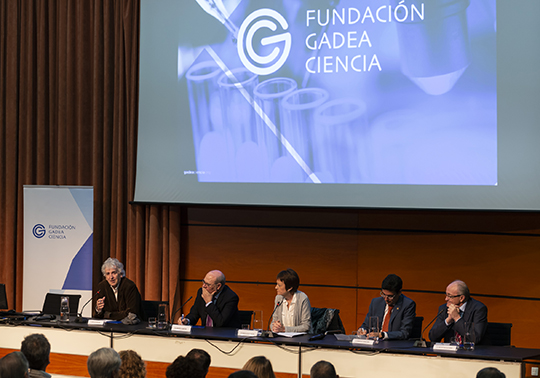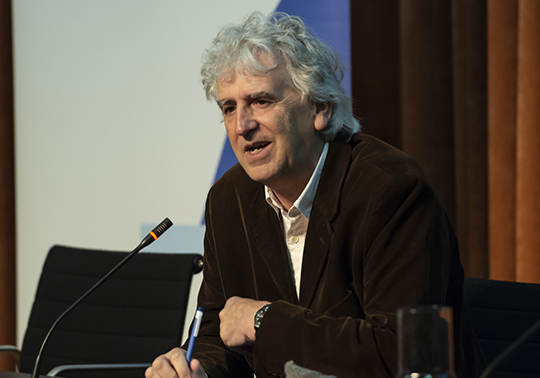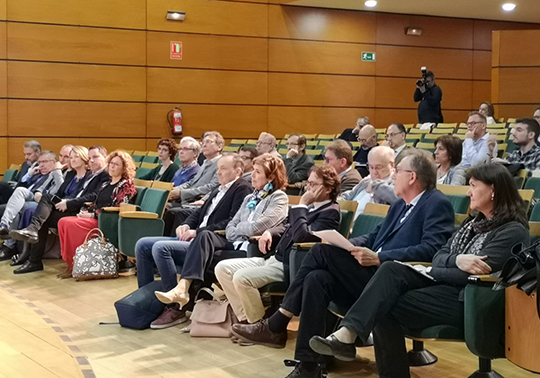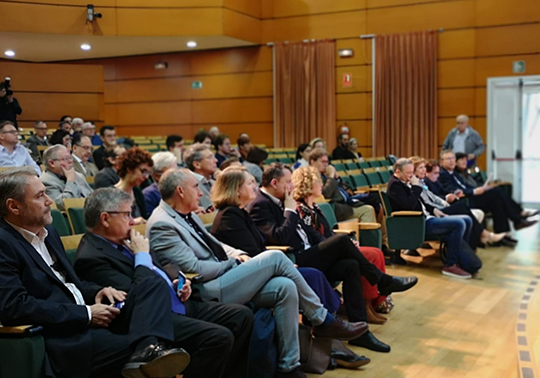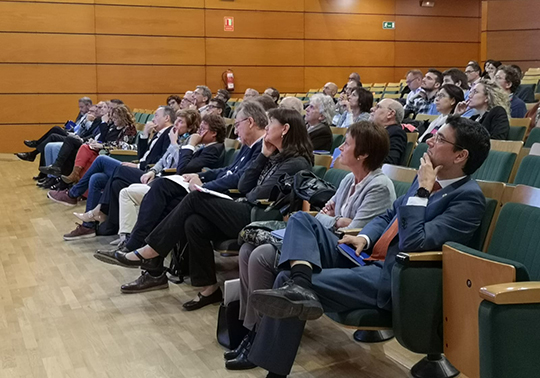Fundación Gadea por la Ciencia presentation at the Botanical Garden of the Universitat de València
- Office of the Principal
- April 15th, 2019
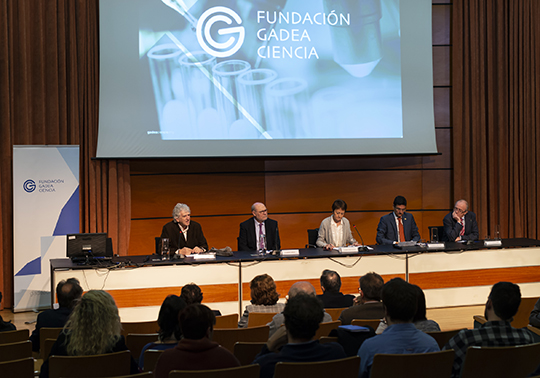
During their presentation at the Universitat de València, Fundación Gadea has highlighted the need for science to be the main character of the story as an indispensable service and right. The Principal of the UV has asked the political parties to organise a Science Agreement to guarantee an I + D + i system that will answer the needs of the society of the future.
Fundación Gadea por la Ciencia, the biggest scientific lobby in Europe, has highlighted the need for scientists and reseachers to work together and collaborate with different disciplines in order to create a science in favour of the citizen during the evaluation of the state of Science in Spain and the Valencian Community carried out this morning in the Universitat de València (UV).
The Principal of the Universitat de València, María Vicenta Mestre Escrivá, has encouraged ‘the collaboration of the social actors that make science possible’, like universities, foundations, social organisations and companies. She has also highlighted the need to work jointly from the universities and research organisations and she has remarked the role of Fundación Gadea por la Ciencia as a ‘key agent, a catalyst of efforts, but also of reflection, dreams and projects.’ Moreover, the Principal has asked the candidates for the upcoming elections for a Pacto por la Ciencia (Science Agreement) with the purpose of ‘having an I+D+i system that will answer the needs of the society of the future’.
For Andrés García Reche, Applied Economics lecturer of the UV and executive vice-president of the Agencia Valenciana de Innovación (AVI), the message is pretty clear: ‘a country is what its scientific community is.’
According to the data collected by the Instituto Nacional de Estadística (INE), the weight of the Valencian Community in the investment in national I+D represents the 0.99% in the regional PIB, which equals 1,080.4 million euros. Despite this figure shows an increase of a 4.1% in comparison to the previous year, this rate is still under the average of Spain in the expense in I+D, which was 1.2% in 2017, almost three tenths above.
During the last tax year, the private sector and the universities invested more than six euros out of each ten euros to the regional I+D+i system. Meanwhile, the economic effort of the Public Administration only represented a 9%, that is, 126,286 euros. However, on a national level, this fee is one of the most significant, since it’s in the TOP 5 and there are 13 regions that received less financing.
In the Valencian Communty, private companies and universities effort in I+D entail a 66% of the total, while Public Administrations only invest a 9%.
According to José Antonio Gutiérrez Fuentes, the director of Fundación Gadea, ‘the Fundación was created in order to influence in the development of a competitive science in favour of the citizens.’ On his behalf, Juan Luis Arsuaga, president of the FGC, believes ‘science should be the main character of this story and scientists should have a say in the debate. We want to be social agents and we want to participate in social debates.’
The conference was inaugurated by the principal María Vicenta Mestre Escrivá; Francisco Moras Más, Principal of the UPV; José Pío Beltrán Porter, institutional coordinator of the Delegación del CSIC en la Comunidad Valenciana; Juan Luis Arsuaga, president of Fundación Gadea, and José Antonio Gutiérrez Fuentes, director of the Fundación Gadea.
During the conference, there was a round table moderated by Eugenio Coronado, Director of the Institut of Molecula Science of the UV (ICMol) with the interventions of personalities such as Isabel Fariñas, professor of Cellular Biology in the UV; José Capmany, professor of Photonics in the UPV, Javier Martí, director of the Centro de Tecnología Nanofotónica of the UPV, Antonio Pich, professor of Theoretical Physics of the UV; Salvador Martínez, director of the Institut de Neurociències d’Alacant; Josefina Bueno, general director of Universitat, Recerca i Ciència of the Generalitat Valenciana; Andrés García Reche, executive vice-president of the Agència Valenciana d’Innovació and Javier Quesada, executive president of the Fundació Premis Jaume I.
File in:




